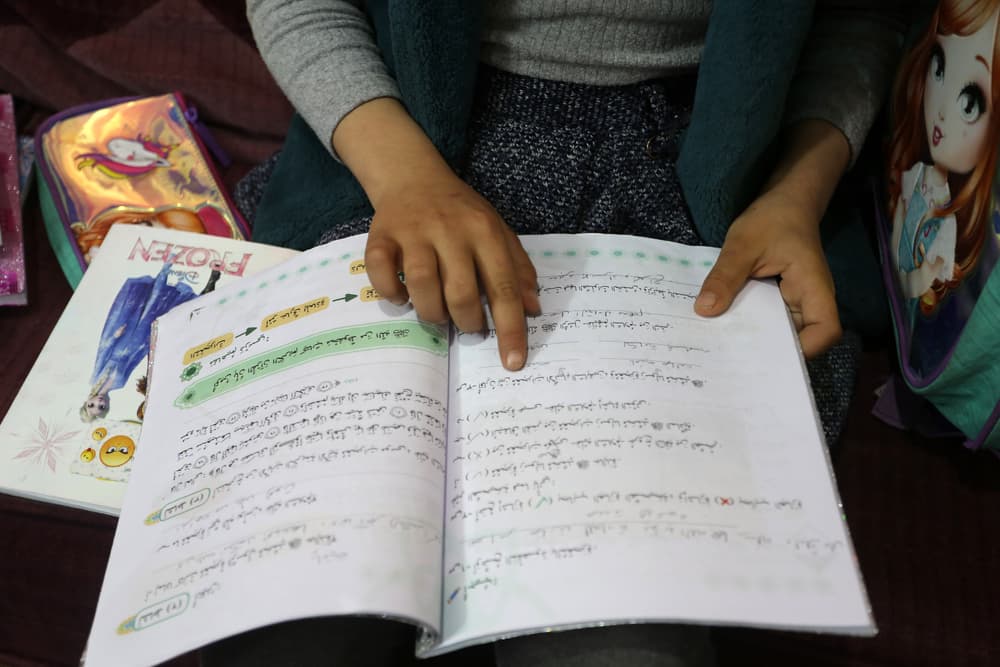
A month ago, we published a piece on the ambivalent stance of the Palestinian people and their political leaders over the decades toward the prospects for a peace process and coexistence with Israel.
We decided to explore this topic further and understand what really hides behind the repeated failure of peace agreements and opinion poll numbers showing that Palestinians, for the most part, still believe in armed struggle.
To do so, we decided to investigate what JCPA (Jerusalem Center for Public Affairs) analyst Pinchas Inbari calls, in one of his articles on the subject, the ‘identity card’ of any political entity: the school curriculum.
After all, what you seek to pass on to future generations often characterizes you and your policies much better than the verified statements at peace summits. It is even more relevant for societies predominantly built on an ideological basis.
We cannot say that we were totally surprised. The subject of violent incitement and anti-Israeli rhetoric in Palestinian schools has been present in the Israeli media for years. There have been images of filmed plays in schools and kindergartens, sometimes with very young children, where the main plot was a military confrontation with Israeli soldiers and caricatured Jews.
However, before October 7th, we, like perhaps most Israelis except for the few who study the Palestinian education system regularly, wanted to believe in an exaggerated scale of the problem.
So when we plunged into reports, the scale and profoundness of the problem amazed us. We assumed that history, social studies, and other social studies textbooks would indeed reflect Palestinian and somewhat anti-Israel narratives. Clearly, we didn’t expect to see love and understanding towards Israel. But we were surprised to see that textbooks on almost all subjects for all ages are literally packed with anti-Semitic stereotypes and that ‘fighting the Zionist occupation’ is somehow miraculously reflected in maths, physics, chemistry, and biology.
It is difficult to speak of any attitude towards peace if, from the early age, one is indoctrinated with ideas of violence, the sanctity of ‘martyrdom,’ and the meaninglessness of ordinary life.
It is purely naive to talk about the ‘two-state solution’ when the second state simply does not exist on the map. From the earliest age, children are raised on the delusion that one day, this non-existent state on the map will not exist for real, and they will be able to settle ‘Palestine’ in its entirety. All it takes is continuing the struggle, which is just another self-sacrifice in order to “lavish the land with the blood.”
Clearly, not everything written in textbooks directly and unconditionally influences a child. One can remember oneself at school age. But for any other ideas to develop, there must be some loud-sounding alternative.
In the meantime, what we see in textbooks corresponds quite well with what we see in polls and, more sadly, in real life, in the form of ‘lone wolf’ attacks and the growing popularity of terrorist organizations.
We were also genuinely surprised at how European reporters, looking at the very same textbooks and examples from them, managed to come to very different conclusions regarding the admissibility of such materials.
The reasoning that jihad is a multifaceted concept and does not always mean casualties and violence, that teaching biology through encounters with the army reflects somehow advanced education approaches with real-life examples, sounds a bit in the ‘context-dependent decision‘ fashion of Ivy League colleges.
Perhaps it is easier to argue that this is just a reflection of Palestinian identity, and one should respect it when it is not you or those close to you who are killed on this same identity basis, and ‘speech turns into conduct‘ only somewhere thousands of miles away.
When Palestinian identity ceases to be driven solely by the hatred of the ‘Zionist enemy,’ that must and could be defeated, when national heroes are not admired based on how hard they hit Israelis, when society focuses on itself and stops raising generations on the false illusion that Israel will one day suddenly cease to exist. Then, perhaps, we will be at least a little step closer to peace.
In the meantime, questions about why the Israeli-Palestinian conflict is still unresolved should not be directed primarily at the Israeli address.
Share
other materials